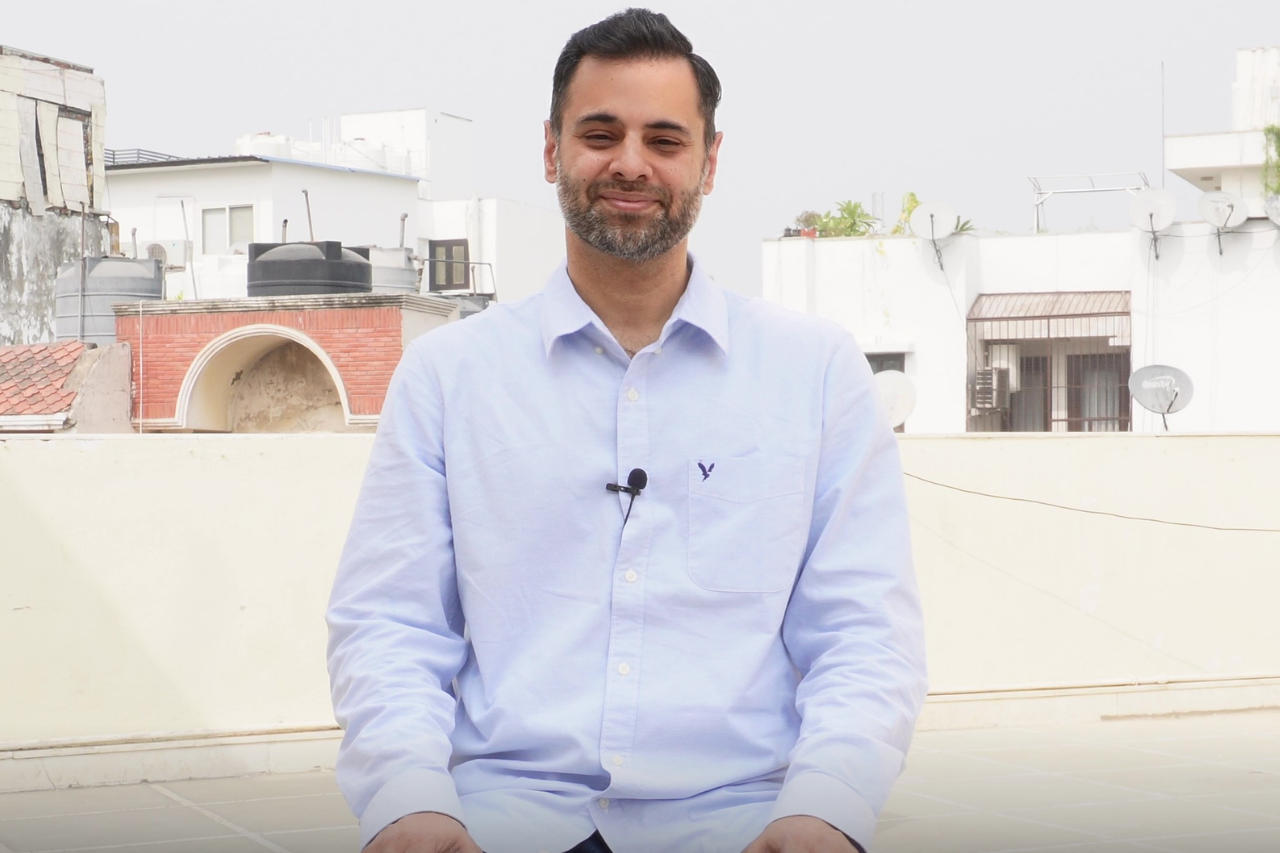Q. Does intellect matter above all else? Can it answer all questions? If yes, why is there so much suffering?
It may seem that I’m trying to undermine the importance of intellect, but it is not so. It is the nature of language that makes it appear that way. Our intellect is one of the most critical dimensions of the mind that is capable of extraordinary wonders.
But when it comes to figuring out life processes or understanding things in totality, intellect is not all that helpful.
We have over-relied on the intellect for everything ignoring other dimensions of the mind. Despite repetitive failures, we rely only on intelligence to answer existential questions.
What the intellect fails to understand is that nothing in the world can be known in its entirety. Phenomenality or life as we know is a layered abstraction, and it’s impossible to pinpoint the exact cause of any event or occurrence in space, time, and causation.
We humans have a dubious gift of intellect that makes life challenging sometimes. Intellect is one of the faculties of the mind that is sharp in nature. It cuts everything. While this ability comes in handy to solve daily problems, it is not of much help if one wants to contemplate the nature of things.
Intellect gives us the ability to discriminate. For example, we can use it to decide the best foods to consume. Based on past experiences, we decide what is good for the body and what isn’t.
Not only that, the intellect helps us manage behaviour as well. It gives us the ability to reflect on our choices and make an informed decisions based on past experiences.
Therefore, one can say that intellect plays a big in our daily functioning. That said, our intellect is the servant of our identifications. Highly intelligent people often get swayed by their emotions when their identifications with ideas and beliefs are challenged. Then the ego comes into the picture, and its only priority is to be proved right.
Human beings believe themselves to be the most advanced species with high intelligence compared to animals and other life forms. We like to characterize ourselves as the “higher” species based on intelligence.
Whatever that means. And we relentlessly give pieces of evidence of the great wonders we have done in the field of medicine, technology, and other areas.
However, it is also true that humans can behave worse than animals and insects when overridden by fear. Fear arises when one’s identifications are challenged or threatened in some way.
When our views on religion, politics, environment, gender, caste, and other aspects are challenged, even the most rational act irrationally, or as we say in the common parlance, “we lose it.”
Why do we lose it? Why is there so much conflict in the world today? The root of all conflict is the sense of separation where we believe ourselves to be separate from others. While we are separate in appearances, the same consciousness runs through all.
In appearances, we may have different views, ideologies, concepts, preferences, likes, dislikes, etc. The fundamental reality behind appearances is one consciousness that forms the substratum of everything.
It is practically impossible for the intellect to grasp this reality. That’s because intellect is a function of the mind. Mind is the duality that creates an appearance of two, and it uses the intellect for this purpose. Intellect is a highly potent tool of the mind.
It can accomplish unimaginable feats. The modern Marvell of technological advancement is a product of collective human intelligence.
However, there’s a potential for misuse as well. When there’s fear in the heart, the intellect becomes subservient to it. The advancement in weapons of mass destruction is a clear example of that.
Some advanced nations sell weapons to poor conflict-ridden countries for economic benefits. And poor nations use foreign aids to server their own interests rather than using it for the purpose they claim.
There are some knowledgeable politicians and intellectuals who justify killing in the name of economic growth. They’re experts at reasoning and explaining it. The mind sees this as evil but its unconsciousness.
We’ve created all kinds of conveniences where practically every consumable item reaches our doorstep at the click of a button. But do these conveniences make us happy? Do they make us feel whole or leave us with an empty feeling on the inside?
The rising figures of psychological illness paints a different picture. My point is that we’re entirely in the grips of our identifications. The past conditioning runs so deep within our psyche that it’s virtually impossible for the conscious mind to understand the resulting implications.
For example, if you’ve grown up in a capitalistic society, all your thinking will likely be geared to that end. While you claim that you’re doing it for human empowerment, inclusion, cultural diversity, or for the greater good of humanity, the mind behind remains fixated on the thought of how to make more money.
On the other hand, people who grow up in religiously conservative societies carry out their personal agendas in the name of God and spirituality. There’s not much difference between the two.
Not just capitalism, even other “isms” are full of contradictions and hypocrisy, including spiritualism. That said, there are organizations comprising of genuine people with integrated minds who really care and are doing phenomenal work.
But the majority of systems, political, religious or others, have become corrupt. Corruption, in essence, is a mismatch between thoughts, words, and actions. That said, we should never discount or discredit intellect because it is the first to notice this contradiction.
It brings awareness of our unconscious behaviours, traits, and tendencies. That’s how we understand the depths of our identifications. How deeply attached we are to our ideas, beliefs, concepts, material possessions, profession, and so on. This attachment creates suffering.
We become identified with our profession, body image, religious and political beliefs, material possessions, relationships, and more. The stronger the identification, the more we see our sense of self in the objects of desire. For example, losing a smartphone can be devastating for some people.
When the sense of self in the object of desire (smartphone) is strong, people react implusively when they lose the thing. They may blame other people. They may even accuse someone of stealing the phone or conspiring against them. When the emotions are overriding, they hijack the brain’s rational part.
The higher the object’s perceived value, the stronger the reaction is. Even the most intelligent people with the highest IQ may behave irrationally when their identifications are threatened.
And the solution is not to cut off these identifications as one may think. That’s how the mind plays tricks. It wants to get rid of everything it sees as problematic.
We can’t break away from these identifications completely as they form the basis of inter-human interactions. However, simply “seeing” them for what they are cuts of the involvement. Involvement causes suffering. It is how the ego thrives.
Dissolution of ego happens through the flowering of the seeds of awareness. The light of awareness dispels the darkness of the unconscious. It ends the perceived separation.
The realization that the same consciousness runs through all forms the basis for the dissolution of ego-identifications. Then the intellect is most effectively utilized for creative work as the involvement with the ego-identified thinking mind is gone.
The intellect effectively solves worldly problems, but with every solution, it gives rise to a host of new problems. Being a part of ego-identification, the intellect remains obsessed with “fixing” things through activism, social service, charity, and other means.
It remains fixated on personal beliefs, unwilling even to consider an alternate point of view. The problem is that no matter what the intellect does, it works to enhance the sense of personal identification, which in and of itself is suffering.
The intellect gives too much importance to the false image which remains immersed in its story. I’m not trying to demonize the intellect or human intelligence. All I’m saying is that personal identifications can highly influence intellect. When we get to know our identifications through self-investigation or other mechanisms, we lose our hold on them, and the involvement is gone.
When the intellect is free from the identifications, it is the first step to awakening the heart. The heart is pure unconditional love. Unlike the mind, the heart is incorruptible.
It is the gateway to genuine compassion and does not discriminate. When the heart sets the intention, and the mind obeys, life becomes joyful, free of contradictions and corruption.

